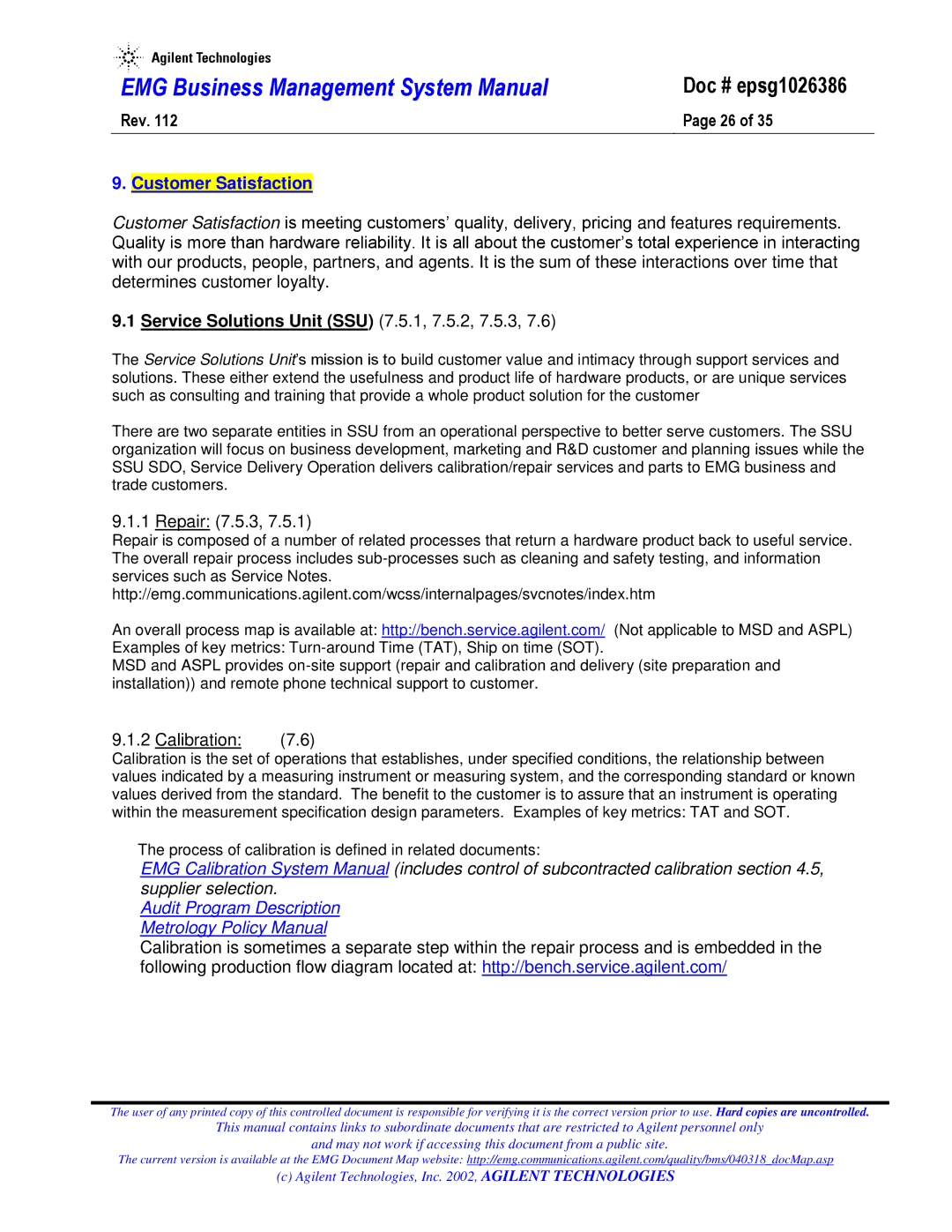| | |
EMG Business Management System Manual | Doc # epsg1026386 | |
Rev. 112 |
| Page 26 of 35 |
|
|
|
9.Customer Satisfaction
Customer Satisfaction is meeting customers‟ quality, delivery, pricing and features requirements. Quality is more than hardware reliability. It is all about the customer‟s total experience in interacting with our products, people, partners, and agents. It is the sum of these interactions over time that determines customer loyalty.
9.1Service Solutions Unit (SSU) (7.5.1, 7.5.2, 7.5.3, 7.6)
The Service Solutions Unit‟s mission is to build customer value and intimacy through support services and solutions. These either extend the usefulness and product life of hardware products, or are unique services such as consulting and training that provide a whole product solution for the customer
There are two separate entities in SSU from an operational perspective to better serve customers. The SSU organization will focus on business development, marketing and R&D customer and planning issues while the SSU SDO, Service Delivery Operation delivers calibration/repair services and parts to EMG business and trade customers.
9.1.1 Repair: (7.5.3, 7.5.1)
Repair is composed of a number of related processes that return a hardware product back to useful service. The overall repair process includes
An overall process map is available at: http://bench.service.agilent.com/ (Not applicable to MSD and ASPL)
Examples of key metrics:
MSD and ASPL provides
9.1.2 Calibration: | (7.6) |
Calibration is the set of operations that establishes, under specified conditions, the relationship between values indicated by a measuring instrument or measuring system, and the corresponding standard or known values derived from the standard. The benefit to the customer is to assure that an instrument is operating within the measurement specification design parameters. Examples of key metrics: TAT and SOT.
The process of calibration is defined in related documents:
EMG Calibration System Manual (includes control of subcontracted calibration section 4.5, supplier selection.
Audit Program Description
Metrology Policy Manual
Calibration is sometimes a separate step within the repair process and is embedded in the following production flow diagram located at: http://bench.service.agilent.com/
The user of any printed copy of this controlled document is responsible for verifying it is the correct version prior to use. Hard copies are uncontrolled.
This manual contains links to subordinate documents that are restricted to Agilent personnel only
and may not work if accessing this document from a public site.
The current version is available at the EMG Document Map website: http://emg.communications.agilent.com/quality/bms/040318_docMap.asp
(c) Agilent Technologies, Inc. 2002, AGILENT TECHNOLOGIES
